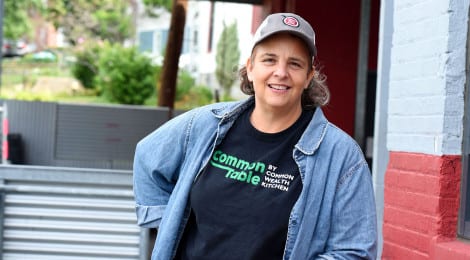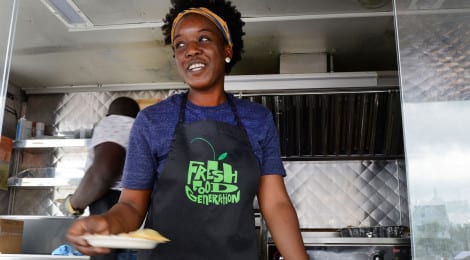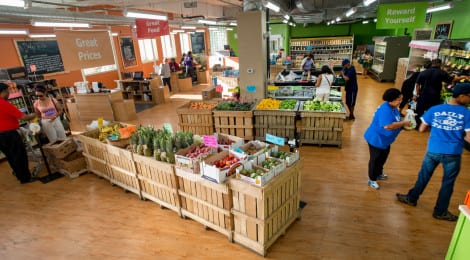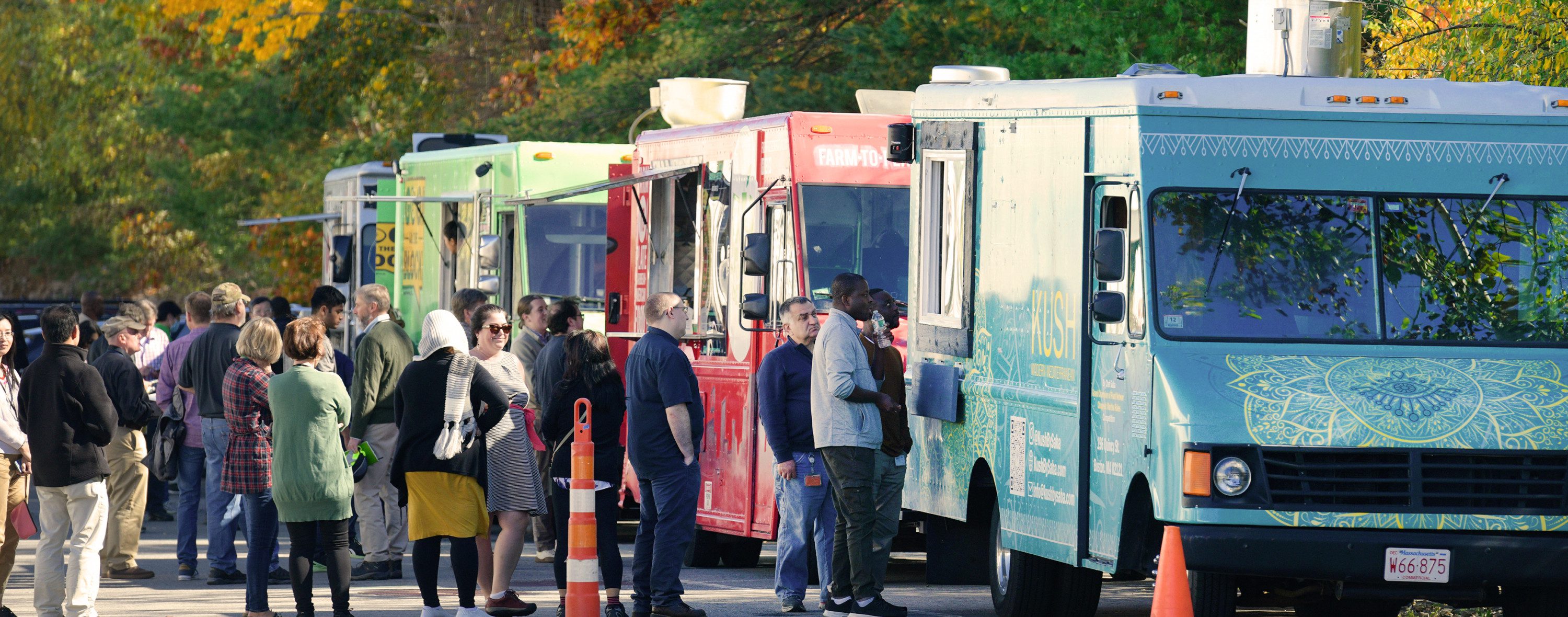
Grantee Profile
Creating Community & Opportunity Through Food Entrepreneurship
CommonWealth Kitchen is building a local food economy rooted in racial, social, and economic justice.
Starting and running a small food business is hard work. As a food entrepreneur, you are responsible for everything — managing staff and finances, marketing your products, branding, and more, not to mention actually preparing and selling food. That’s why CommonWealth Kitchen (CWK) is on a mission to help build a food economy in Boston rooted in racial, social, and economic justice. Through shared-use commercial and commissary kitchens, food production and packaging equipment, business education programs, strategic partnerships for market access, warehouse food storage space, and other services, CWK leverages relationships, creativity, and collaboration to help diverse entrepreneurs start and grow successful food businesses out of their 10,000 square-foot facility in Dorchester.
Around 50 businesses operate out of CWK at any given time. When members cycle out, new businesses cycle in, maintaining the kitchen and food storage spaces at maximum service capacity. Taking into account their incubator programs, business classes, food shows, and other services, 150-200 businesses are part of CWK. The majority of these businesses are product companies and around a quarter are caterers and food trucks. More than 75% of CWK-supported businesses are Black, Indigenous, and Person-of-Color run. CWK guides food businesses through every step of development — from feasibility, to product and recipe development, to getting a product onto the shelves or a truck onto the streets.
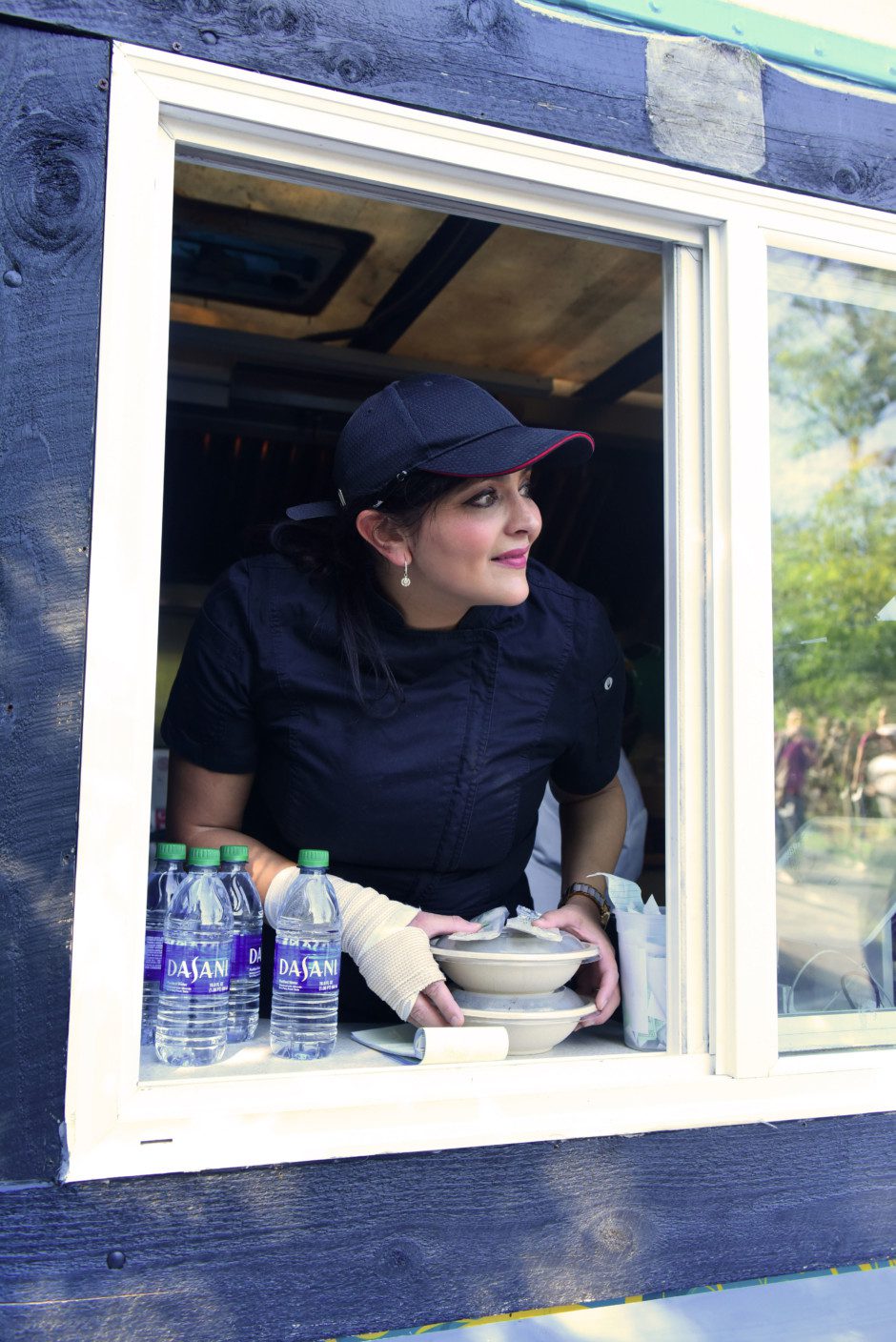
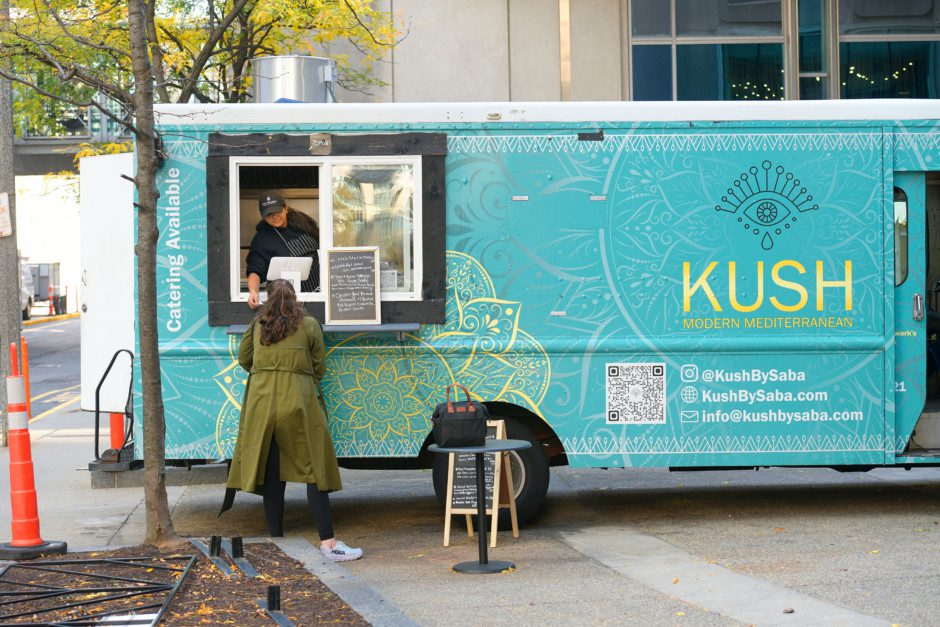
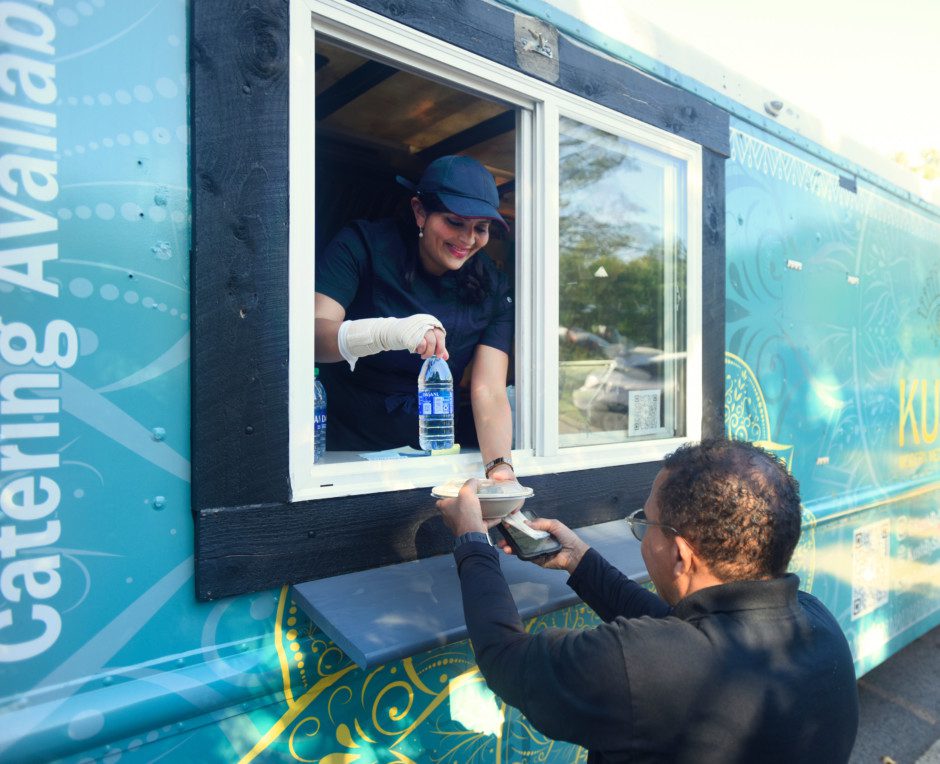
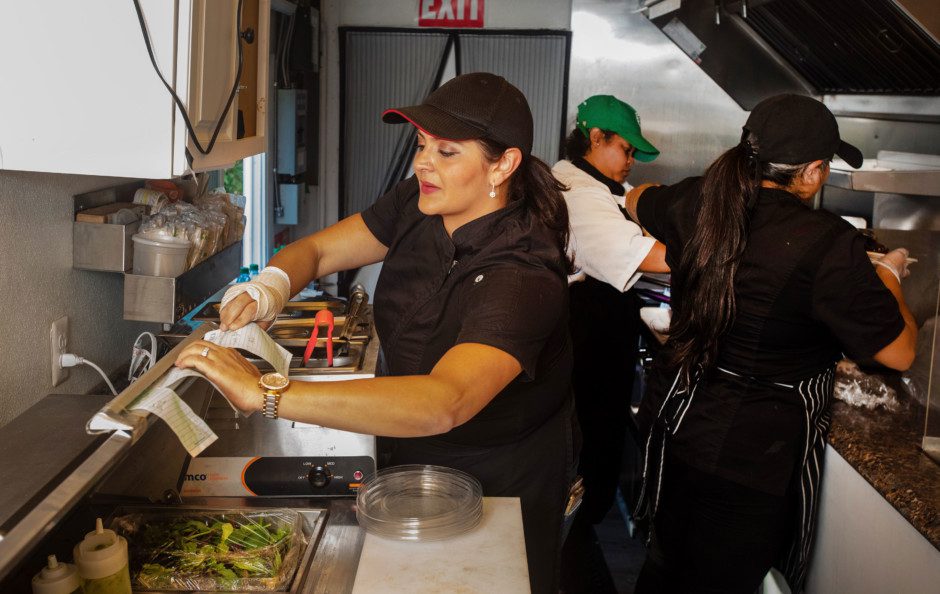
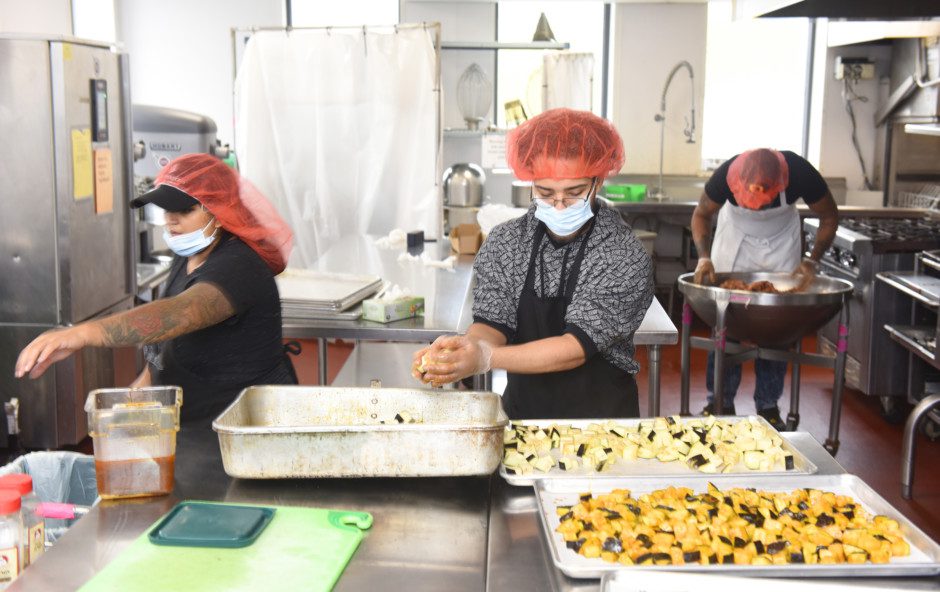
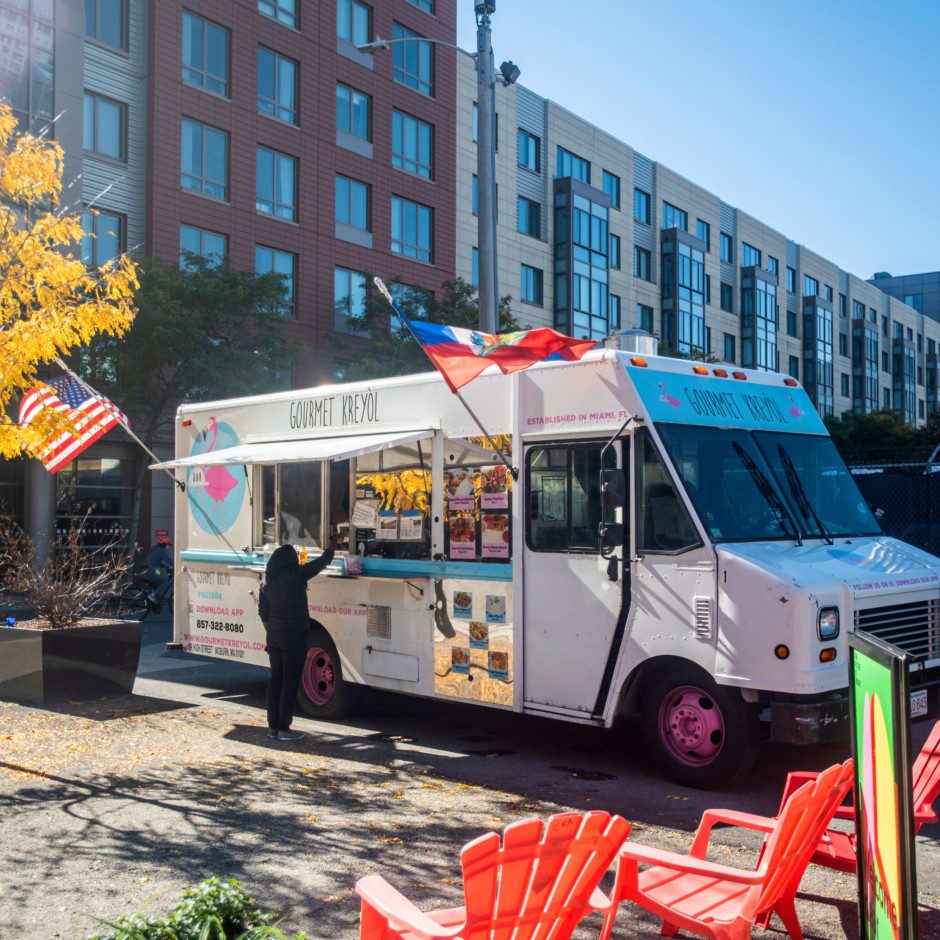
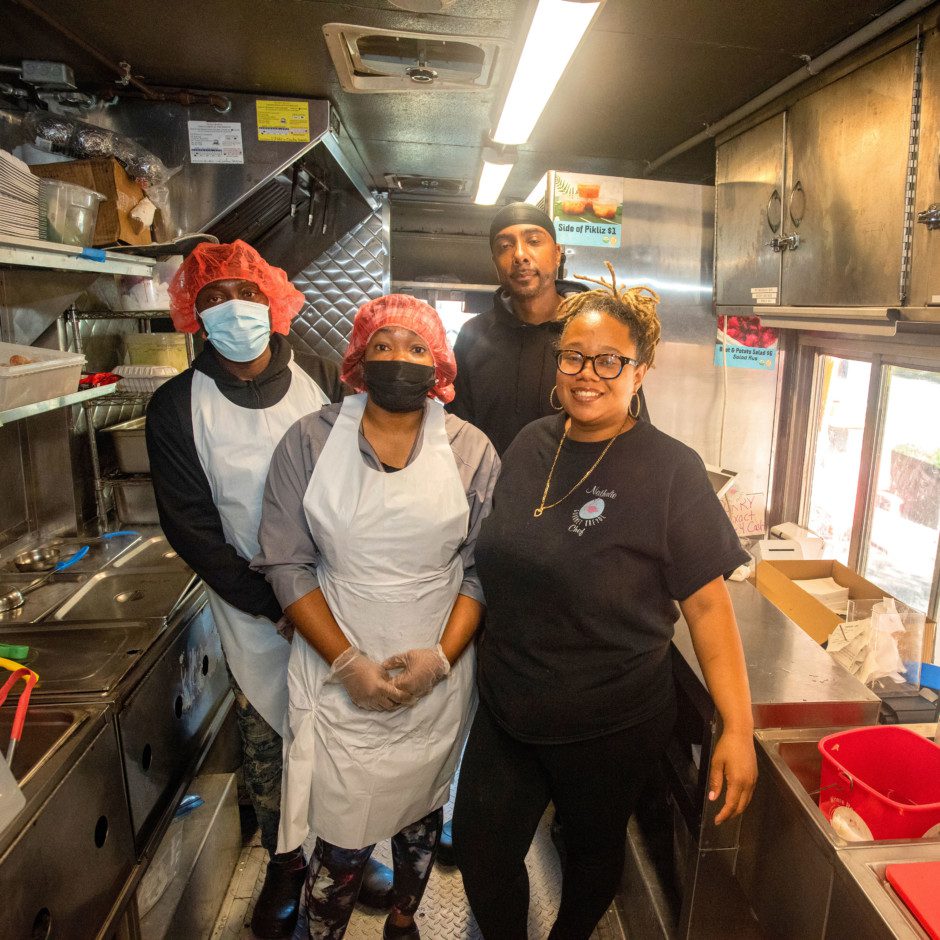
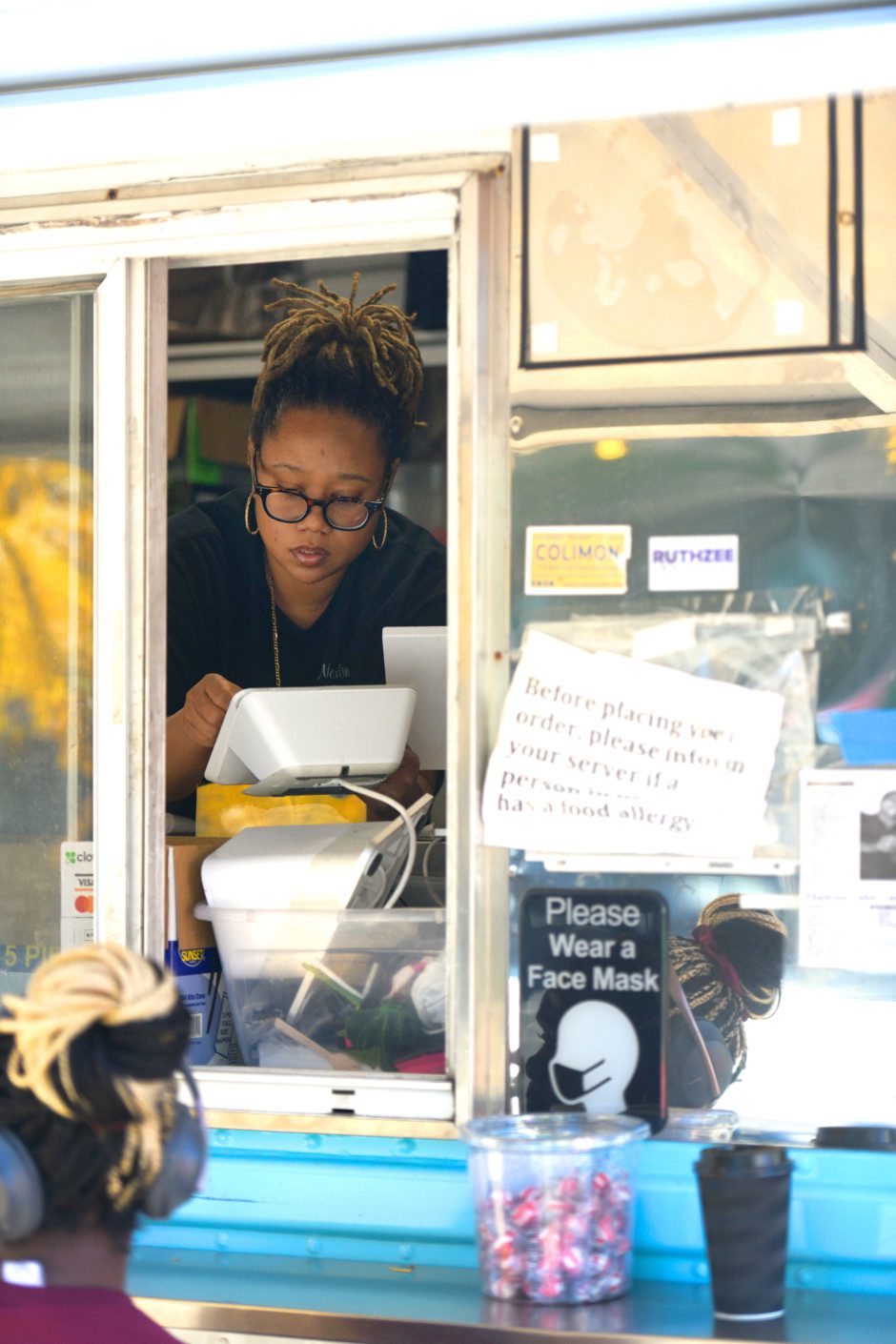
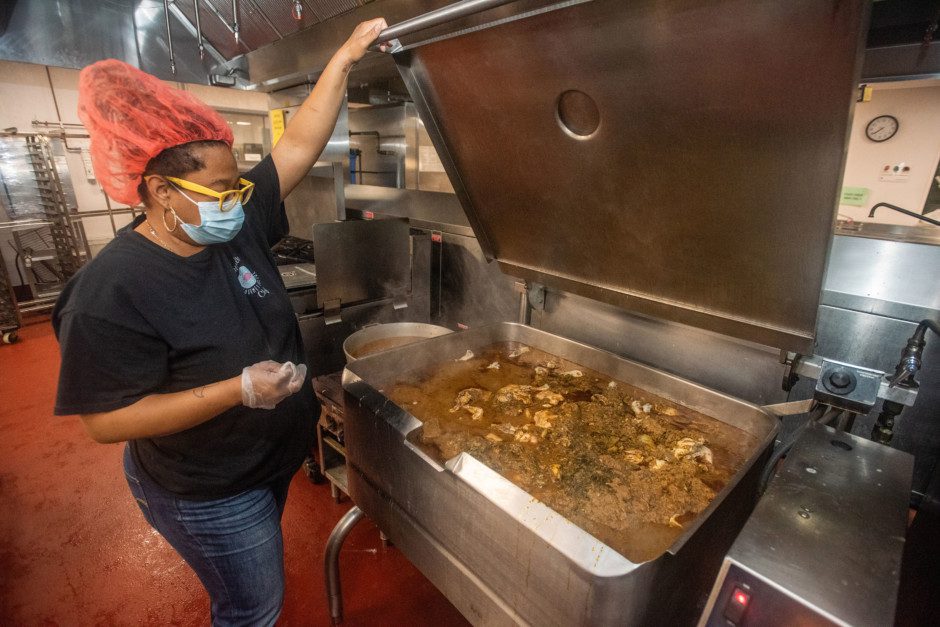
Developing a food truck menu is all about minimizing customer wait times, creating an efficient commissary kitchen process, maximizing space on the truck, and growing and maintaining a loyal customer base. “People that think running a food truck is going to be fun and easy, [and] it is neither!” says Chef Saba Wahid, owner-operator of Kush by Saba. Long days, extended periods of time on one’s feet, heavy lifting, and driving such a massive, loaded vehicle all demand strength and perseverance — and, as a woman in the industry, Saba says she has to work twice as hard to prove herself. “You have to have nerves of steel, and you have to be patient, and you have to be tough”.
Saba is a culinary businesswoman through and through, and has been for most of her career. Catering, cooking instruction, televised food competitions — she has done it all and been all over the world, guided by a love of delicious food and a drive to succeed. Saba received the seed money for her food truck from an unlikely source — winning Food Network’s competition show “Chopped: Martha Rules” (filmed in late 2020, aired in spring 2021). Although she had been dreaming about opening a brick-and-mortar restaurant for over a decade, Saba realized that with a growing family and no prior experience running her own food business, a food truck would be a more realistic way to start and build her brand. It took a while to find a truck in late 2020; it seemed like everyone was buying up second-hand food trucks as the restaurant world tried to pivot and adapt to the pandemic. Finally, in October 2021, Saba got her truck.
Saba immediately started reaching out to local commissary kitchens, eager to get cooking. She applied and was accepted to CWK’s Ready To Launch program with her business plan for a modern Mediterranean mobile food enterprise: Kush by Saba. Although Saba grew up eating traditional Pakistani food, she prefers to cook and explore Mediterranean and Italian cuisines. Saba birthed two babies around that time — her human child and her business.
It has been trial and error for Saba identifying public vending locations that have the consistent foot traffic she needs to make a profit. Now, a year into the business, Saba has settled on a couple spots that meet her needs, but she prefers private event catering. Catering, in fact, is how most food trucks stay in business. Private events guarantee income and are easier to plan. Many food trucks actually start out with on-site catering while they’re still outfitting their trucks, testing recipes and building a following.
Mornings in the CWK commissary kitchen are a busy time — that’s when food trucks like Kush are busy prepping food as much as possible before loading it onto the truck. Whether catering or hitting the streets, the work of serving customers is primarily that of assembling. For Saba, customizable grain bowls and salads utilize pre-prepped ingredients and sauces while noodles and mac and cheese are all fully cooked ahead of time. Popular menu items at Kush include curried chickpea falafel, beet hummus, harissa brown sugar braised beef over couscous, and mac and cheese topped with a lamb merguez crumble. Saba did a lot of research and testing early on to optimize efficiency and quality throughout her cooking and serving process.
For Chef Nathalie Lecorps of Gourmet Kreyòl, however, patient preparation is a key part of connecting the food she serves to her Haitian culture. “Haitian food is not something quick, it’s a process,” she explains. The authentic Haitian chicken Nathalie prepares, for instance, involves a 15 to 20-minute soak in a vinegar or citrus juice solution, followed by a rinse with boiling water. For fried chicken, you then stew the meat in epis — a flavor base used in nearly all Haitian food, similar to sofrito — and tomato paste, giving time for all that flavor to infuse down to the bone and for the meat to tenderize. Then you’re ready to fry. It takes time.
Nathalie was born and raised in Miami, surrounded by food. “Even though I was born in the United States, I identify as Haitian,” says Nathalie. “The culture is so embedded in me…when I turn on the radio, I’d rather listen to Haitian music than anything else…All of my cousins that are my age are like ‘You’re the most Haitian one of us!’” Nathalie’s parents operated a successful Haitian restaurant for 22 years. On weekends, when Nathalie’s siblings were hanging out and swimming with their cousins, Nathalie was in the restaurant. Whether in the kitchen or front of house, she loved the relationships and community — being the steward of “a place where people would come and break bread.”
In 2018, Nathalie’s cousin Karyn convinced her to move north to Massachusetts with her two sons. Around the same time, Nathalie was reevaluating her career. When she asked herself when she was truly happy, the answer was in her parents’ restaurant. Nathalie was working at the YMCA in Woburn when the organization decided to pilot a cooking class to help build bridges between new immigrants arriving in Woburn and the city’s longer-term residents. Nathalie took on the pilot, teaching a class of 17 people all about Haitian cuisine. The project re-ignited her passion for connecting people, food, and culture. It gave her the opportunity to “introduce[e] my culture to people that probably knew things about my community through the news…not experiences through friends.” From those 17 students, Nathalie started to get catering gigs. Then, attendees of those events started hiring her for their parties. “It became a thing,” Nathalie says, “and it started to take over my life…[so] I just had to say ‘okay, God.’” It was early 2020.
The pandemic made something that was already difficult — running a small food business — even harder, and the recovery is still ongoing. A September 2022 poll of 3,243 Massachusetts small businesses found that more than half are still reporting below-pandemic profit levels, despite a strong majority of them having received at least some Covid relief funding. Bonnie Rosenbaum, Director of Communications at CWK, says that many food entrepreneurs who were trying to open pre-pandemic just couldn’t get off the ground. Some existing and early-stage businesses were able to hunker down and use the time to develop their products, but now with the added stressors of inflation and continued health safety risks, businesses need even more support than they used to.
Nathalie was one of the lucky entrepreneurs who found ways to grow and thrive amidst the hardships of the pandemic. She tried looking for a brick-and-mortar space in early 2020, but costs were too high. Then, in October 2020, got a bargain on a food truck on Facebook Marketplace.. Everything was going so smoothly — it felt like the universe was telling Nathalie that she was on the right path. “The minute that I moved to Massachusetts, everything in my life just aligned.” Six months later, in April 2021, Gourmet Kreyòl launched as the first-ever Haitian food truck in New England.
Nathalie focused on hitting the streets in her first year, trying to vend as many days of the week as possible. “It was a lot,” she says, “and I wasn’t prepared for the amount of work that this involved.” On her first public vending day at a park in Jamaica Plain, Nathalie rolled up 30 minutes early to set up, expecting to feed 30 people. There was already a line formed — meanwhile, Nathalie didn’t even know how to turn on the fryers yet.
Nathalie says that CWK was instrumental to her success. When she first opened the truck, she was prepping food out of a commissary in Woburn. “It wasn’t…a learning space,” she explains. Gourmet Kreyòl was the only food truck in the kitchen, so there wasn’t really anyone to learn from as Nathalie got her production routine and business going. But once she joined CWK’s Ready to Launch food business accelerator, she was taking food safety classes, learning how to scale recipes, developing budgets, and more. “It just felt like home…I knew I was going to be comfortable there.”
Other businesses were welcoming and supportive in the kitchen from day one, offering her tips on how to trim production time and providing general encouragement and support. Nathalie was also paired with an experienced kitchen member, Ernie Campbell of Jamaica Mi Hungry, to learn some of the ropes. Nathalie says that just one afternoon shadowing Ernie has likely saved her thousands of dollars of kitchen time — he helped her learn how to do food prep at scale more efficiently. By the end of Gourmet Kréyol’s first year, Nathalie had established a food production routine, built her brand, and cultivated a substantial following. For year two, she decided to reduce vending to one day a week and devote the rest of her time to catering.
Nathalie is committed to paying it forward to the people and cultures that got her where she is today. When a magnitude 7.2 earthquake struck Haiti in August 2021, Nathalie was out in the community every day serving food, just as her parents did in Miami after Hurricane Andrew. Nathalie also makes a point to support other entrepreneurs — when anyone tells her they’re trying to open a food truck business, she gives them her number. “I feel like I owe that, like, I have to help people. Because people helped me to get to where I am.”
Success looks different for different food trucks, says Bonnie from CWK. Many aim to eventually open brick and mortar restaurants once they have the necessary capital and customer base. In these cases, businesses often keep their trucks for events and pared back off-site vending schedules to continue attracting customers.
In Nathalie’s case, her dream is to open a drive-through franchise. This would give franchisees the opportunity to own their own part of Gourmet Kréyol while serving quality, delicious food that hard-working, single moms like her can bring home to their families.
Saba of Kush by Saba is developing a cookbook, working as a culinary instructor, and recently filmed another food TV show. Cooking and bringing delicious, gourmet food to people are her passions. “I feel incredibly blessed at this point in my life. It really feels like everything is coming together.”
Small food business owners share many of the same challenges, but CWK helps them share many of the same successes, too. With CWK’s resources, support, and community, passionate entrepreneurs like Saba and Nathalie can establish and scale their businesses, bringing delicious food to the Boston community.
It just felt like home. I knew I was going to be comfortable there.
